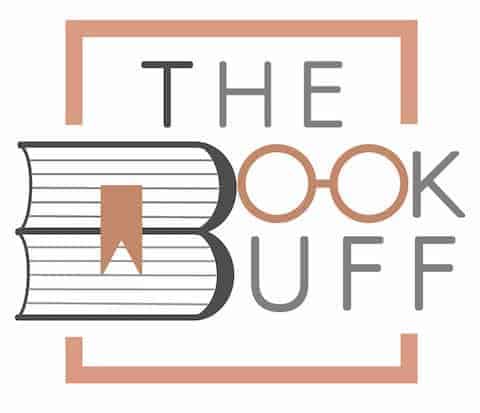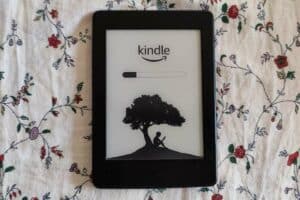Can Reading Improve Your Writing Skills? – We Find Out!
Disclosure: This post may contain affiliate links. – meaning I may get a commission if you decide to purchase through my links, at no additional cost to you.
If you are a career writer, whatever the genre, or an amateur writer writing blogs and articles, you sometimes “run out of ideas” or feel that you’ve stagnated. Then you are looking for something to boost your imagination again and you wonder whether your writing will improve if you read more.
Reading is one of the most effective ways to improve your writing skills. Reading regularly exposes you to a variety of ideas that improve your writing. Reading also makes you familiar with different writing styles, expands your vocabulary, and helps you discover innovative ways to use words.
In this article, we’ll look at how reading contributes to your writing skills, and what type of books can enhance your writing. We’ll also touch on other ways how to improve your writing skills.
Does Reading Affect Your Writing Skills?
Reading does affect your writing skills. Reading specific books can increase your knowledge about a topic or place that you are writing about. Reading also helps you to learn how to structure your writing more effectively as you subconsciously discover how other writers structure their stories.
So, reading on a regular basis can definitely positively affect your writing skills. But, how much should you read? To know the answer to that, check out my other article on how many hours should you read a day!
5 Benefits of Reading That Help Improve Your Writing

Many reading benefits can also improve your writing skills. Amongst other things, it
- expands your knowledge of the world,
- develops your critical thinking skills,
- enhances your cognitive skills,
- improves your vocabulary, and
- improves your grammar.
Reading Expands Your Knowledge of the World
Reading about places you’ve never been to or cultures you’ve never personally experienced, expands your knowledge of the world. Even when you read about places known to you, reading broadens your perspective of the places, the people living there, and their customs.
Related Article – 21 Benefits of Reading Regularly [Here’s Why We Should All Read!]
This enables you to more easily write about places and people, and it also allows you to write for a broader audience. Reading stories by and about people who are different from yourself can help you to build empathy and cultural awareness that will reflect in your writing.
Helps Develop Critical Thinking Skills
Another benefit of reading is that it develops your critical thinking skills. Good novel writers must be able to think critically about several things when writing their stories.
The writer has to evaluate the motives of the characters in the book, construct the plot logically, and use themes, symbolism, and subtext carefully.
The more critical a writer thinks when writing, the more intriguing readers will find the book. Thus, by reading, a writer enhances the critical thinking skills that are needed to write better.
Improves Memory and Cognitive Function
As a writer, a well-developed cognitive function helps you to write more clearly and expressively.
Reading improves your memory and overall cognitive function and is regarded as one of the most effective ways to exercise your brain. A British study, for instance, has found that reading for pleasure not only improves one’s literacy but one’s math ability as well.
Improves Vocabulary
A very obvious benefit that reading has on your writing is that reading expands your vocabulary. You build your vocabulary by simply reading books and articles, and looking up the meaning of unfamiliar words.
Sometimes it is not even necessary to look up the word as the meaning becomes clear through the context it is used in.
You automatically use some of these new words in your vocabulary when you write your next book.
Improves Your Grammar
Apart from expanding your vocabulary, reading also helps to improve the way you use grammar. The more you read, the more familiar you become with the rules of grammar.
This helps you unconsciously to incorporate these rules into your own writing. Thus, reading assists you to have fewer grammar mistakes in your writing.
What Type of Books to Read to Improve Writing?

Now that you have understood how reading can help you improve your writing skills, let’s take a look at some of the types of books that you should read in order to be most effective!
1. Books to Inspire New Ideas
It is a known fact that reading improves your imagination!
When you read books related to what you are writing, they will inspire new ideas about the topic. Or you can read something completely different from what you normally write about.
The books you read will then help you think about your writing in a completely different way and open up new avenues of possible topics or stories.
2. How-to Books
There are many “how-to-write” books to read. There are how-to books for beginners, detailing the most basic principles to new writers, but there are also more advanced how-to books for the established writer.
The more advanced books cover topics like plot development, how to end your book with a cliff-hanger (to enable you to write a follow-up later), and new trends in the genre you are writing in.
3. Read as many Books as Possible
As books are the ideal tool to “exercise” your brain you are activating areas in your brain where amongst many other functions, imagination, creativity, and lateral thinking originate – all aspects needed by a writer.
The more books you read on various topics and in different styles, the more areas in your brain are activated and the better your writing will become.
Is it Necessary to Read More to Write Better?
Reading more doesn’t directly make you a better writer. However, reading regularly plays a contributing factor in improving your writing skills. Thus, it is not necessary to read a lot to become a writer. Nevertheless, successful writers are also known to be voracious readers!
Studies have shown that writers who’ve excelled and are known as “good writers” all read wide and deep and frequently.
From time to time even good writers experience “writer’s block.” They just find it impossible to think of anything they want to say in their writing. It may be that they are not inspired to start any new writing or they can be in the middle of a book and the plot just doesn’t develop.
One of the best ways to overcome this is to read – read frequently and read more. By reading books, they get ideas from other writers and this can help to inspire their writing.
Whether you are reading an old favorite or discovering a new author, reading is a sure way to give you a new perspective and improve your writing.
Can You Become a Good Writer Just by Reading More?
Unfortunately, reading alone will not make you a good writer.
Many aspects play a role in making you a good writer. It would be naïve to think that you can become a good writer by just reading more. It will definitely help you to write better, but to be a good writer you, first of all, must have the passion for writing, and the talent to tell stories.
Without these, you will never become a good writer – a writer perhaps, but not a good writer.
So, although reading can help you to become a good writer, there are, unfortunately, other skills and characteristics you must have to really excel as a good writer.
Other Ways to Improve Your Writing

Although it is proven that reading can make you a better writer, there are also other things you could do to enhance your writing skills. You can
- attend writer workshops,
- attend relevant seminars,
- complete a course on writing skills at a College or online, and most of all
- listen to stories other people are sharing – they can be the topics of your next novels!

About the Author
Akansha is a former business journalist and a seasoned communications professional. She is the founder of TheBookBuff, an avid storyteller, and a lifelong biblophile! Check out her profile page to know more about Akansha.



![Why do People Like to Read? [Benefits & How to Start!]](https://thebookbuff.com/wp-content/uploads/2022/03/pexels-mentatdgt-1319854-300x200.jpg)

![How to Find Your Kindle Email Address? [The EASY Way!]](https://thebookbuff.com/wp-content/uploads/2021/11/high-angle-view-of-woman-at-home-sitting-on-couch-2021-08-29-19-37-12-utc-optimized-300x200.webp)
![How to Find Your Kindle Serial Number? [The EASY Way!]](https://thebookbuff.com/wp-content/uploads/2021/11/female-warehouse-worker-scanning-barcode-on-shippi-2021-09-02-07-22-45-utc-optimized-300x200.webp)